
Range hoods come in various styles and help keep your kitchen clear of odors, smoke, and grease. Here’s how much it costs to install a range hood by type.
Protect yourself from costly damage with these leaky freezer fixes


Temperatures that are too high or low can create leaks.
In some cases, your freezer might be too full.
Check the gasket to make sure your freezer properly seals.
Routinely inspect the drain pan for signs of wear and tear.
A leaky freezer is more than a simple inconvenience; it can lead to costly water damage, mold, and food safety problems. Fortunately, many homeowners can fix a leaky freezer themselves. However, certain freezer fixes are best left to the pros. Use this guide to troubleshoot your leaky freezer and determine whether you need to hire a pro to fix it.
To reduce the risk of water damage caused by faulty appliances, make it a habit to check for signs of dampness, mold, and pooling water monthly.
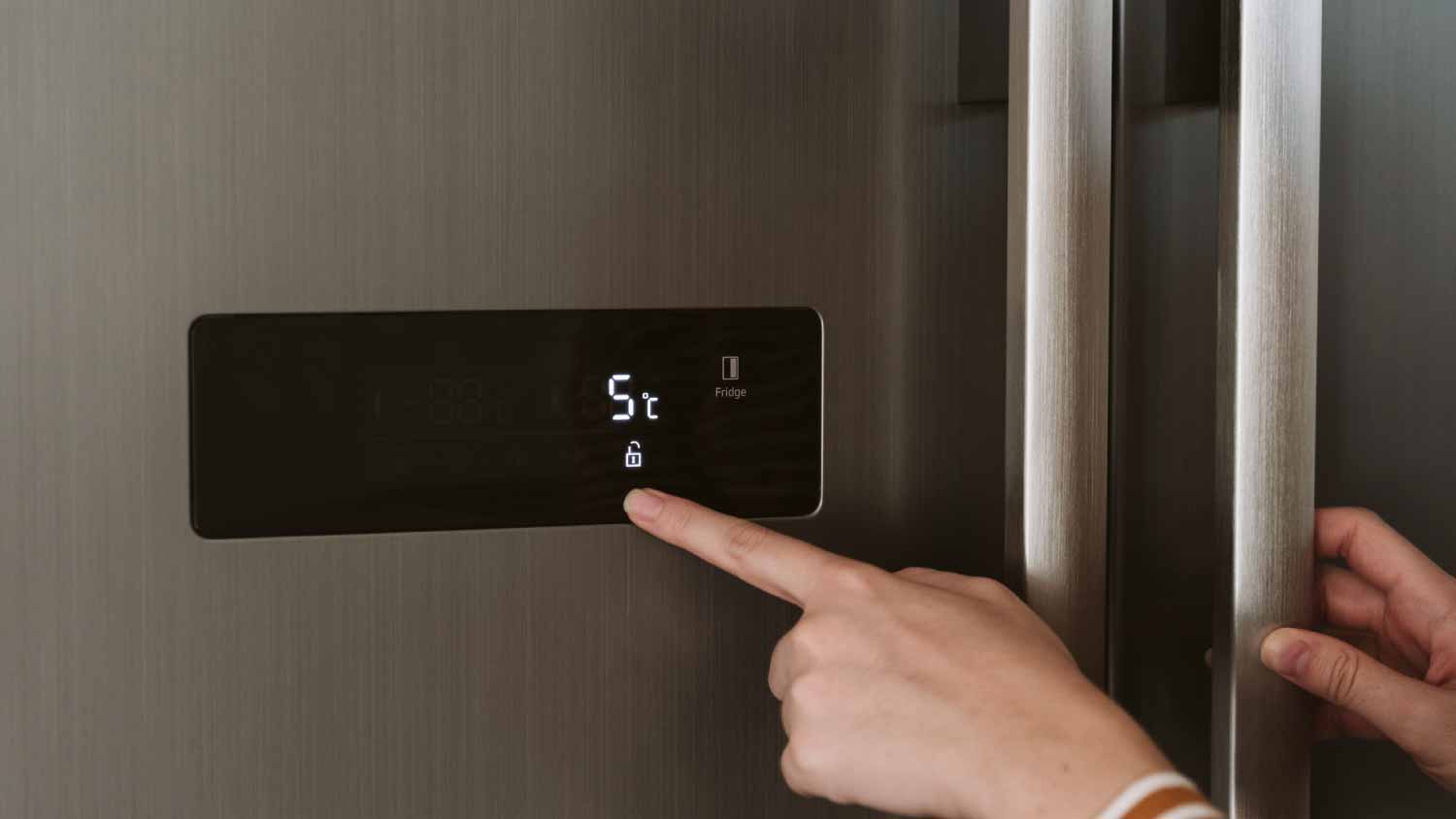
It's typically best to set your freezer temperature to 0 degrees Fahrenheit. If it's warmer than that, your food might not freeze properly, and water can leak out. If your freezer is colder than 0 degrees, it might cause excess ice, which will then melt and potentially leak during a defrost cycle.
Make sure your freezer is set at 0 degrees Fahrenheit or a degree or two lower.
The defrost drain, usually located near the back and bottom of the freezer, removes water produced during a defrost cycle. But when the drain is blocked or frozen, water can't escape, so it might leak out of the freezer.
Turn the freezer off and manually defrost it by opening the door. Once it's mostly defrosted, dip a cloth in warm water and use it to melt any ice blocking the defrost drain. If you notice any food particles or other debris blocking the drain, you can use a screwdriver or a strong wire to remove it.
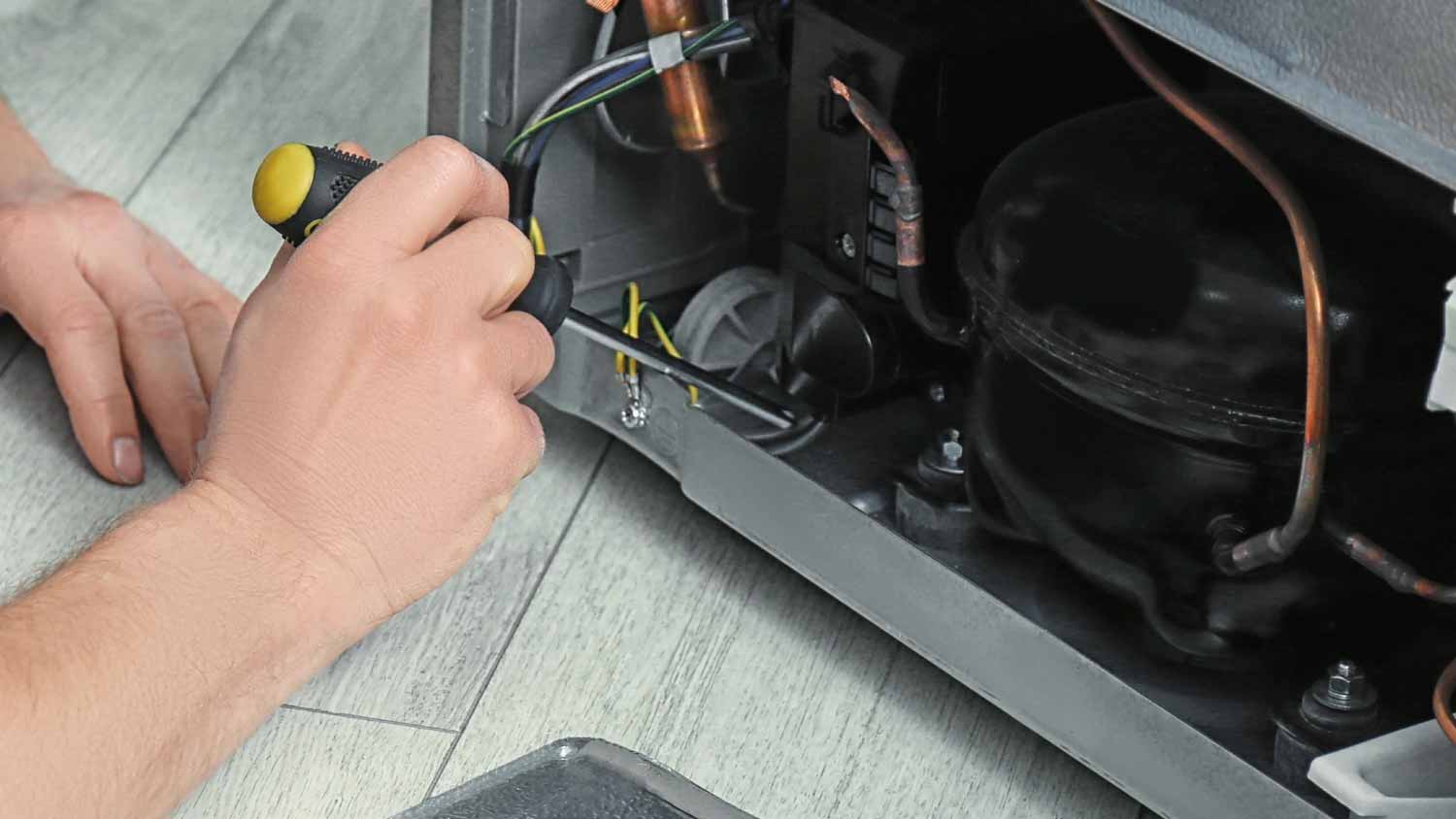
If your water line, which supplies water to the ice maker, is damaged or loose, it can cause water to pool under the freezer.
Locate the water line, which is usually a thin copper or plastic tube located in the back of the freezer and connected to the household's water supply valve. Make sure the line is tightly attached to the freezer and the valve. If it seems loose, tighten it and see if that fixes your problem. Next, look for any blockages and remove them using a strong wire. If it looks like ice is causing the blockage, let it defrost by unplugging the freezer and fridge for a few hours.
If the aforementioned steps didn't fix the problem, look for any damage to the water line. If the water line is bent or has other apparent damage, you can buy a replacement water line kit from your local hardware store then replace it yourself. You can also call a local freezer repair person to help.
The water line, discussed in step three, is attached via a valve, which opens and closes to control the flow of water. If the valve is clogged or broken, it can cause water to leak from the bottom of the freezer. If this goes unnoticed, it can cause serious water damage and potential mold growth. Water damage restoration costs are much more expensive than most freezer repairs, so handling the issue immediately is imperative.
Inspect the valve, which is usually located near the bottom back of the freezer, for any signs of damage or debris. If it's dirty with mineral deposits or other debris, thoroughly clean it and see if that fixes your problem. If it's damaged or shows signs of corrosion, replace it with a new one.
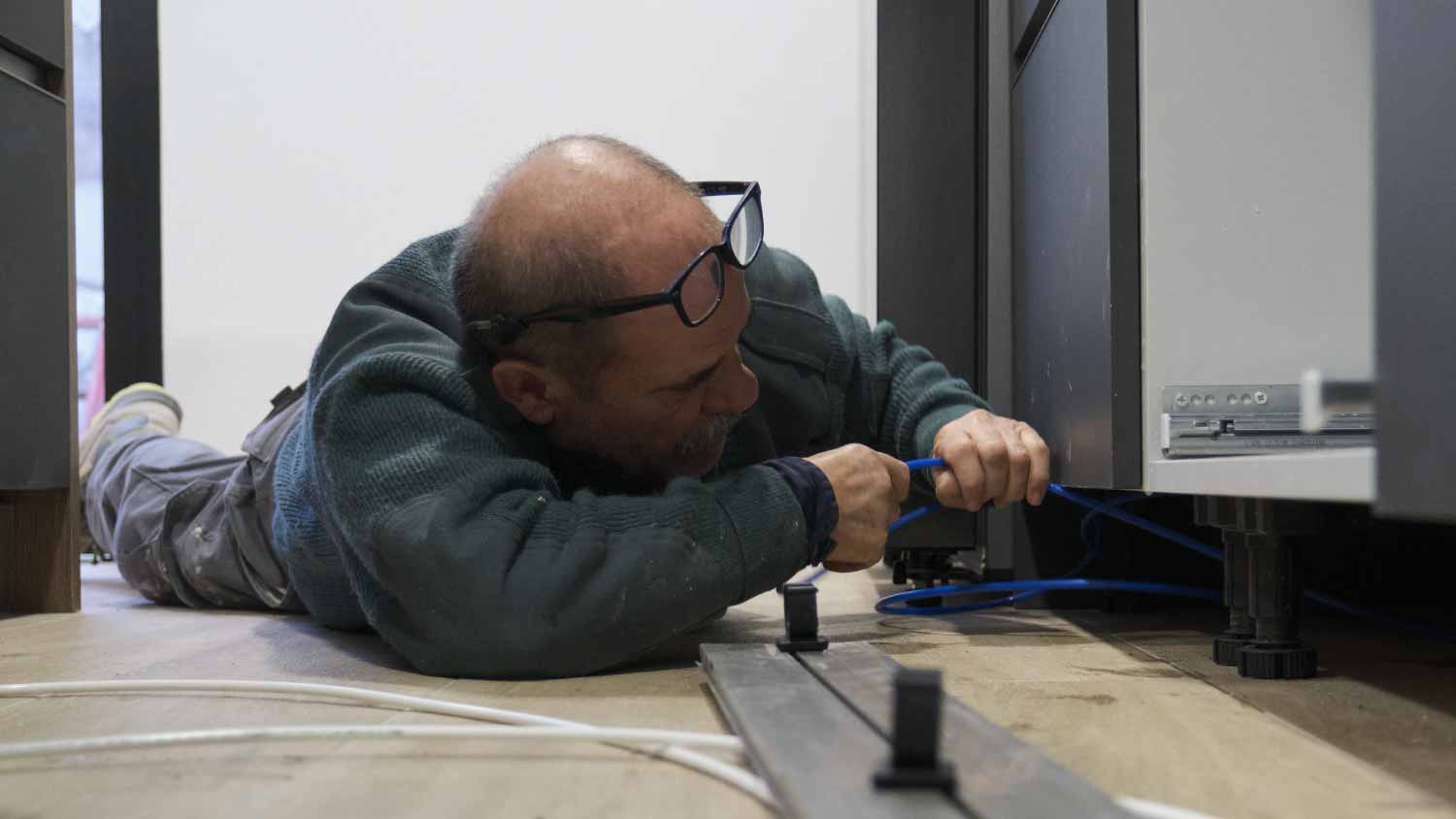
The drain pan collects water and condensation during your freezer's defrost cycle. If the pan has any cracks or holes, water will leak out onto your floor.
Routinely inspect the drain pan for signs of wear and tear, and replace it when necessary. The drain pan is usually located beneath the refrigerator or freezer. In some cases, you may need to remove the front kickplate or otherwise get underneath the appliance to access it. If it's not beneath your appliance, it might be in the back.
The freezer door gasket is usually made of rubber or another flexible material. It runs along the entire length of the freezer door to create an airtight seal. But if it's damaged, warm air can infiltrate the freezer, creating condensation and leaks.
Inspect the gasket for damage and debris. If it's dirty, clean the freezer gasket with mild detergent and water to remove any food residue and other debris. If it's damaged, you'll need to replace it. It's typically best to hire a qualified freezer repair person since it can be tricky for a layperson to install it correctly. It’s worth the appliance repair cost to have it handled properly.

In some cases, your freezer might be too full to properly close, which can result in leaks due to warm air making its way inside.
Make sure the freezer door fully closes and seals without obstruction. If anything is in the way, reorganize your freezer items so that the door closes properly.
If the room where the freezer is located has excess humidity, the freezer needs to work harder to eliminate excess moisture, which can cause it to overwork and accumulate condensation and/or frost.
Place a humidifier in the room with the freezer to help balance humidity levels.
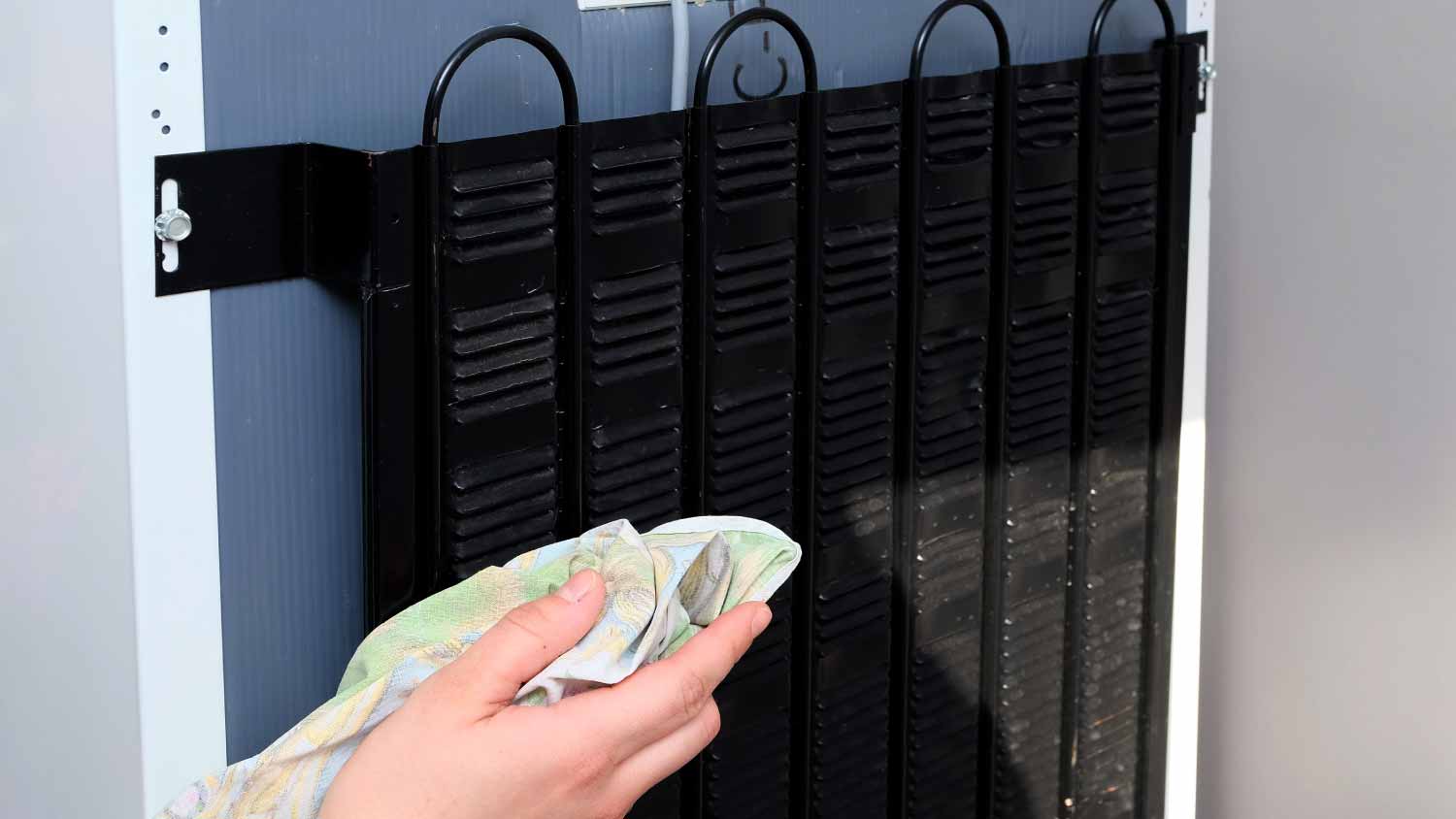
The condenser coils, usually located in the back or beneath the freezer behind a grille, dissipate any heat extracted from the freezer's interior to help maintain a low temperature. If they're damaged or dirty, your freezer can overwork, resulting in excess frost, which will leak during defrost cycles.
Clean the condenser coils using a coil brush and a vacuum with a brush hose attachment. Ideally, you should clean these coils once or twice per year. If you notice any damage, call a pro to fix them.
A leaking freezer can be frustrating, especially if you have a lot of food in it and don’t want to waste it. The good news is that some issues, which require little to no knowledge, are entirely safe to handle. For instance, you can adjust the freezer’s temperature, defrost the freezer to unblock the drain or use a humidifier to lower humidity levels in the room. These are simple tasks that you can handle without any safety concerns.
However, if your freezer has more complex issues, it's best to leave it to the pros. Not only will you ensure your safety since the freezer involves many electrical components, but you’ll also prevent voiding your warranty. If you repair yourself and it worsens matters, the manufacturer can deny your warranty claim, leaving you with more expensive and time-consuming repairs. Professionals understand the necessary safety precautions and have the expertise to diagnose and properly repair the freezer. They also often have the tools and parts needed to repair the leak immediately. While you might incur an emergency plumber cost if you require immediate service, it’s worth it for your safety and your freezer’s longevity.
From average costs to expert advice, get all the answers you need to get your job done.

Range hoods come in various styles and help keep your kitchen clear of odors, smoke, and grease. Here’s how much it costs to install a range hood by type.

One of the most common fridge problems is a blown compressor motor. Use this guide to determine the cost of replacing the compressor and to estimate the total cost of your repair.
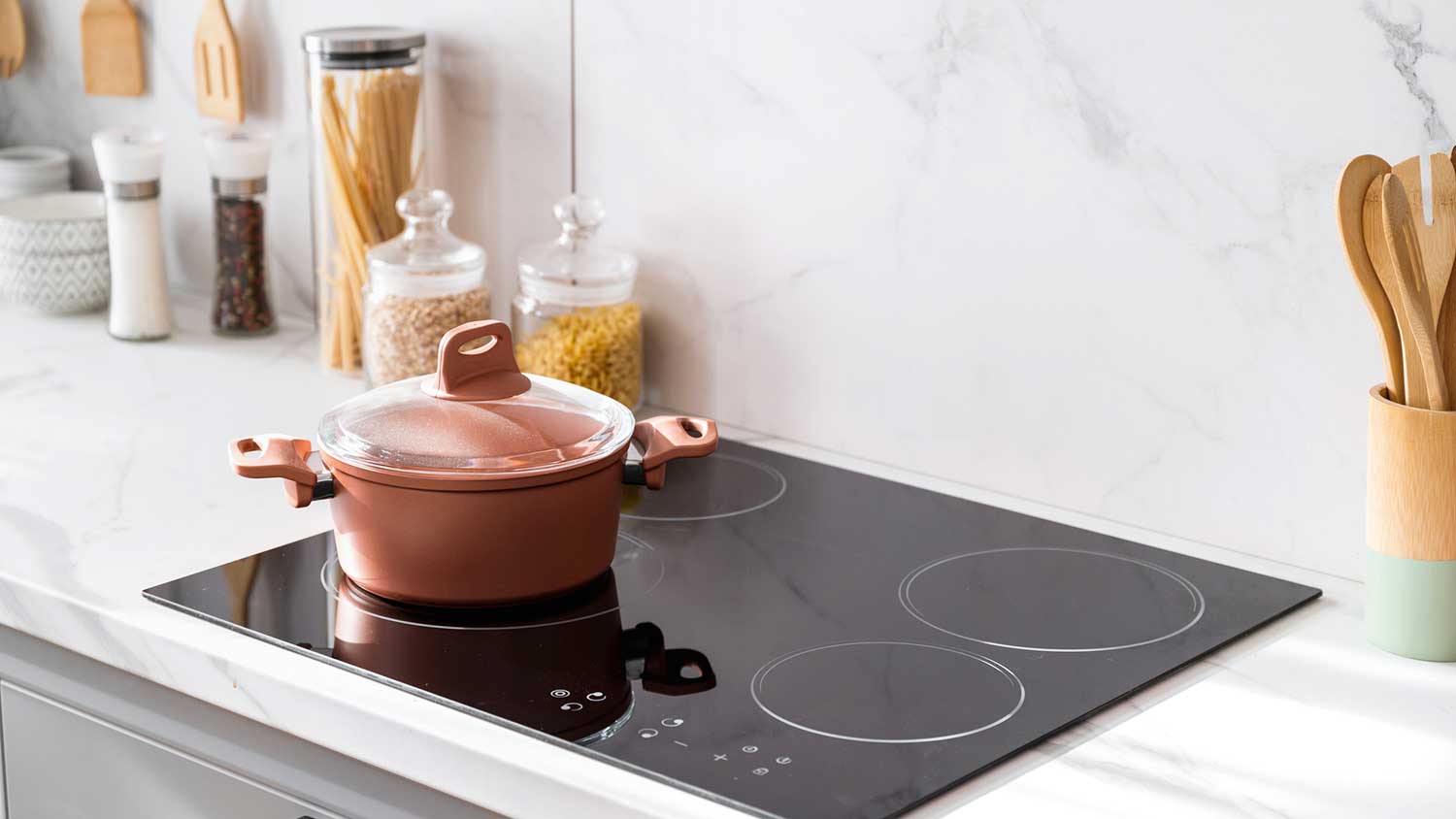
Discover the average cooktop installation cost, key price factors, and tips to save. Learn what impacts your total cost and how to budget for your new cooktop.

If a constantly squeaking noise has you wondering why is my dryer squeaking, keep reading to learn what may be causing the issue and how to fix it.

Wondering who to call to hook up a gas dryer? Call a licensed plumber or contractor to hook up your gas dryer and make sure it's venting properly.

Burnt popcorn or a candle gone wrong can smell pungent and overwhelming. Find out how to get these smoky smells out of your house for good.